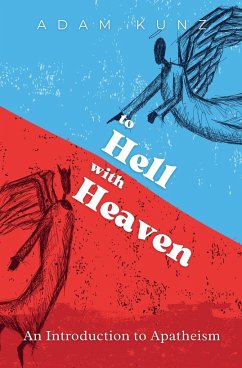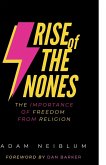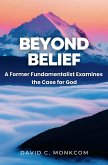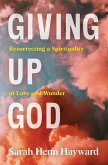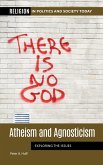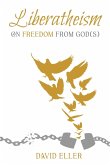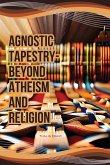The population of the United States is becoming less and less affiliated with any religion, at the same time that national, state, and local governments are considering policies that elevate religious freedom over other civil rights and liberties. Meanwhile, religious extremism and religiously motivated violence are steadily rising. In these vigorous debates, the loud voices of extremists drowned out religious and irreligious moderates. As the so-called "faithful" demand more and more accommodations for their beliefs, are large percentage of the population is on the sidelines. How should this "silent majority" of moderates approach such a pressing national conversation? In To Hell with Heaven, Dr. Adam Kunz offers a solution: apatheism. A combination of the words "apathy" and "theism," this attitude meets religious claims with indifference. In his part-philosophical, part-autobiographical account, Dr. Kunz explains what apatheism is and how it differs from its opposite, religious zealotry. Drawing from his own experience leaving Mormonism, he argues that when it comes to religious extremism, rather than "fight fire with fire," moderates should embrace passive resistance. Instead of accepting the high-energy, apocalyptic narratives of zealots, Dr. Kunz invites moderates to counter it with their own narrative - that zealot thinking and sectarian debates should take a backseat to much more pressing issues. Ultimately, this book empowers believers and non-believers to look extremists in the eye and, as with a playground bully, declare: "I don't care."
Hinweis: Dieser Artikel kann nur an eine deutsche Lieferadresse ausgeliefert werden.
Hinweis: Dieser Artikel kann nur an eine deutsche Lieferadresse ausgeliefert werden.

